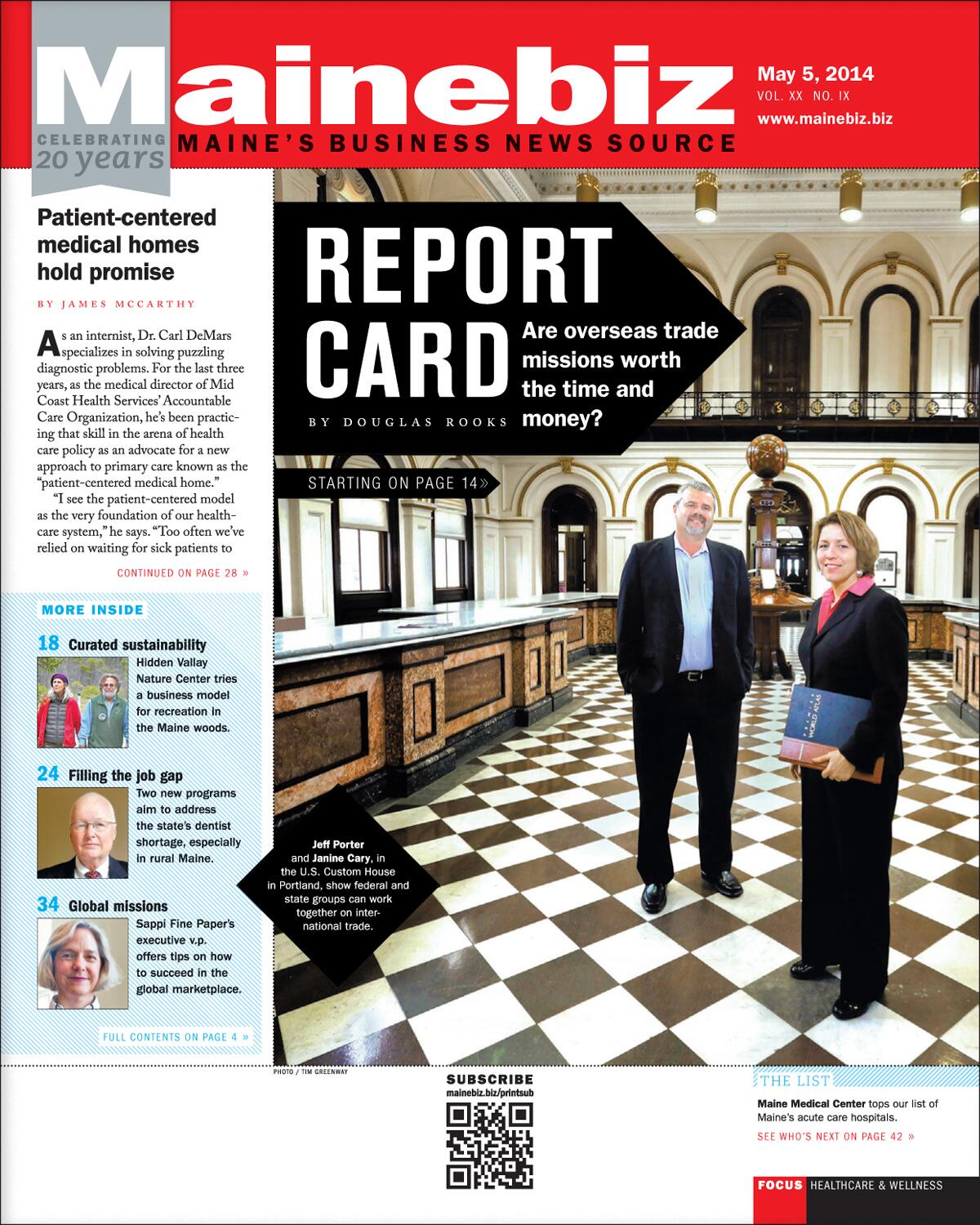We habitually have second thoughts about something we’ve just posted, and this often happens as the sheep are a-leaping over our heads at the end of the day. Not ‘second thoughts’ in the sense of regrets, but in the sense of additional things we could have said but didn’t.
Herewith such an addition to yesterday’s post on the five donkey Other Side award to MaineBiz.
Before we get to that, allow us an aside. We’ve posted several times in the past about ‘awards’ and their place in the great self-esteem culture that infects so many of our enterprises today, both public and private. Two prior items we think have relevance on the subject:
http://othersideofbrunswick.blogspot.com/2012/06/most-praised-generation-teachers.html
http://othersideofbrunswick.blogspot.com/2009/11/major-awards-follow-on-notes.html
The latter post includes this passage, which we find especially apropos:
It is important to note that there are "absolute awards" and there are "relative awards." For example, the Oscar is given to the "Best Picture" of the year, regardless of how good it is in an absolute sense. If all the movies in any given year were undistinguished, the least undistinguished would still win the Best Picture award. Even worse, if all the movies stunk, the least stinky would win Best of the Year.
I'm not aware of any year in which it was declared that no movie worthy of "Best of the Year" was nominated, and so no award was granted. Similarly, I don't know of any year when a Nobel Prize for Peace was not awarded because no achievement worthy of the prize had been nominated.
This phenomenon is in keeping with the general decline in our culture. No matter how low we sink, there is always someone or something that, relatively speaking, is "best." No pass, no fail; this is grading "on the curve" taken to it's most destructive extreme.
And this one:
I'm reminded of the state's ranking system for which town should receive funding for construction of a new school. I visited with the officials in charge, and it became very clear that there was no absolute standard for receiving funding. Rather, the whole system was based on allocating a predetermined amount of funding every year.
There was no pass/fail grade on the applications submitted by the various school districts; there was simply a "scoring" followed by a rank ordering of the applications. If 30 applications were received, and 27 of them really didn't warrant new school construction, it didn't matter. The state had a sum allocated for the year, and it would be spent no matter what. The awarding of funds was completely relative, and the primary goal was to spend every last available dollar, whether it was warranted or not.
Plus one more:
That's the way the annual awards the local paper is so good at winning work. Every win is for "Best of the Year" in this or that category. Further, the award selections are made by industry peers, rather than objective outside authorities.
Given this standard of merit, and the rather small number of newspapers in our area, the net result is that nearly every paper gets to claim some "award winning" performance for the year.The process is not particularly rigorous or error free. Not that long ago, our local paper's former opinion editor was awarded the prize for best editorial of the year for an item she didn't write. When I pointed that out to her and the editors of the paper, they blew it off as just an irrelevant nit.
The takeaway from the above is that none of the cases described has an absolute standard or expectation of excellence; they are each relative awards granted by comparison to other offerings, no matter how lacking each might be in merit.
Think about what that concept means when applied almost universally in every aspect of our society.
Alright; back to the subject at hand.

Notwithstanding the utter silliness and cognitive dissonance of the term “Non-profit Business Leader,” it seems to us there are some reasonable questions that relate to the concept, and the choice for this year’s award. Here are the ones that came to mind before the sheep did their job last night.
- What is the standard of excellence applied to winnow down the nominees for Non-Profit Business Leader of the Year to determine the winner? Are higher operating losses (‘non-profit achievement’) more prized than lower operating losses, or vice versa?
- Is there an absolute standard of achievement that must be met for the award to be given, or is this a ‘best of the year’ relative award?
- Is ‘business’ economic viability a consideration?
- Are there guidelines for determining which candidates qualify for consideration, and which don’t? For example, are they government employees or not? Do they operate a business or not?
- How broad a scan of Maine’s ‘Business World’ is conducted to look for winners?
- Where did this year’s also ran’s stack up in operating loss percentages for their so called ‘non-profit businesses?’
- Who nominated Ms. Quinn of NNEPRA? Was it TrainRiders Northeast, NNEPRA’s lobbying affiliate, headed by Wayne Davis?
- Has any other government employee won the award in the past?

We’d like to ask this question as well, but some would probably consider it a cheap shot, so we’re running it in invisible type:
- Is “MaineBiz” an abbreviation for Maine Bizzaro World?
If you can see it, you must have your secret decoder ring on.
We’ve also pondered one other unknowable. If, through some strange cosmic connection, we were able to land a grant for $10 million a year from a highly placed government source, take a suitable annual fee for ourselves, and then hand out the rest to various businesses with the condition that they lower their prices by oh, 50%, and make up the difference with a sum we provided them, would we qualify for consideration for the award being discussed here?
If not, pray tell why?
No comments:
Post a Comment